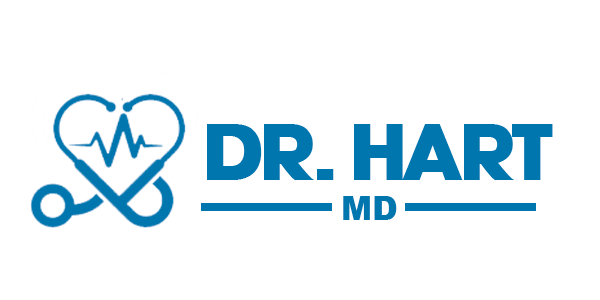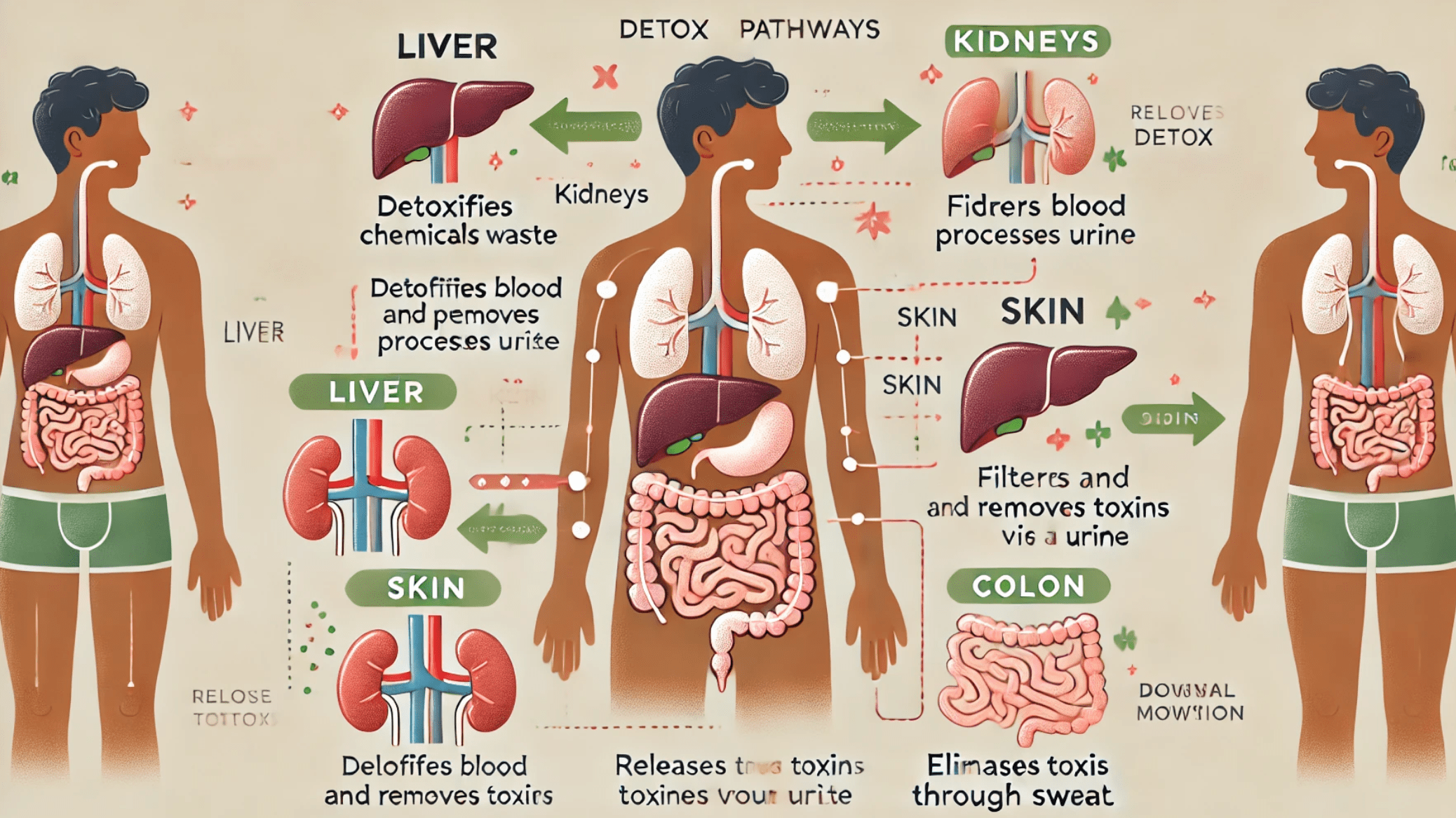The modern world presents numerous ways we are exposed to toxins, which can severely affect our health and wellbeing. From environmental pollutants to unhealthy lifestyle habits, toxins infiltrate our bodies, disrupting vital processes. Fortunately, there are various natural and medical methods available to help detoxify our systems. In this guide, we’ll explore the different types of toxins, their impact on the body, and effective ways to remove them.
What Are Toxins and How Do They Harm the Body?
Toxins are harmful substances that come from both external and internal sources. Externally, they may be found in pesticides, heavy metals like lead, mercury, and uranium, plastics, and even in environmental factors like microwaves. Internally, stress can generate toxins as it alters hormone levels, affecting bodily functions.
When toxins accumulate, they disrupt cellular processes, leading to a compromised immune system, hormonal imbalances, and even defective genes, which may increase the risk of diseases like cancer. Toxins also interfere with the production of vital chemicals needed for a balanced and functional body. Therefore, removing them is essential for overall health.
General Methods On How To Remove Toxins from Your Body
1. Limit Toxin Intake and Exposure The first step in detoxification is to prevent additional toxins from entering the body, giving it a chance to expel those already present. Key strategies include:
- Eat Pesticide-Free Food: Organic fruits and vegetables, especially cruciferous ones like broccoli, cauliflower, and Brussels sprouts, support detox.
- Reduce Sugar Consumption: Excess sugar disrupts metabolism and contributes to toxin buildup.
- Drink Plenty of Water: Proper hydration, especially with slightly alkaline water, helps flush toxins out of the body.
2. Boost Your Metabolism A faster metabolism helps the body process and eliminate toxins more efficiently, particularly those stored in fat cells. To rev up your metabolism:
- Increase Physical Activity: Regular exercise boosts metabolism and helps your liver, the primary detox organ, function optimally.
- Regulate Body Temperature: Keeping the body warm supports optimal metabolic activity, promoting toxin elimination.
3. Sweat it Out Toxins are released through sweat, making regular sweating an effective detox method. Whether through exercise or the use of a Far Infrared Sauna (preferred for deeper tissue detoxification), sweating is a natural and efficient way to cleanse your system.
4. Support Regular Bowel Movements Constipation causes toxins to re-enter the bloodstream. Eating a fiber-rich diet and staying hydrated ensures regular bowel movements, which is essential for effective detoxification.
5. Incorporate Detoxifying Herbs and Spices Herbs and spices like cilantro, parsley, garlic, turmeric, and celery are known for their detoxifying properties. These natural remedies help eliminate heavy metals and support liver function.
Specialized Detox Methods
In some cases, more specific detox treatments are necessary to remove particular toxins like heavy metals or persistent organic pollutants. These treatments may include:
1. Detoxifying Supplements Supplements like spirulina, chlorella, and iodine can help detoxify the body at the cellular level. Spirulina and chlorella are especially useful in binding to heavy metals and other toxins, aiding in their removal.
2. Coffee Enemas A coffee enema is a traditional method to help the liver detoxify by stimulating the production of bile, which binds to toxins and helps excrete them.
3. IV Chelation Therapy Chelation therapy is a medical procedure that uses specific agents to bind to heavy metals like lead or mercury, which are then excreted from the body. This therapy is typically administered by a doctor and can be highly effective for individuals with high levels of heavy metals in their systems.
Rest and Recovery: Essential for Detoxification
One often overlooked aspect of detoxification is sleep. During sleep, the body repairs itself and removes cellular waste. Adequate rest allows the body to focus on regeneration and detox, so ensuring proper sleep hygiene is crucial to an effective detoxification process.
Enhanced External Counter Pulsation (EECP) Therapy
While not traditionally associated with detoxification, Enhanced External Counter Pulsation (EECP) therapy improves circulation, which can indirectly support detox by promoting better blood flow to the organs involved in the detox process, like the liver and kidneys.
EECP works by inflating and deflating pressure cuffs placed around the legs in sync with the heartbeat, improving circulation to the heart without the need for medications. This non-invasive therapy stimulates the opening of new blood vessels, improving blood flow and overall cardiovascular health. The therapy, often combined with detoxifying IV treatments and oxygen therapy (LiveO2 Training), is a holistic approach to heart health that could aid in toxin removal through improved circulation.
Studies have shown that EECP is particularly beneficial for individuals with angina, improving their ability to engage in moderate exercise, thus facilitating detox via increased metabolic activity.
The Role of Nutrition in Detoxification
1. Focus on Cruciferous Vegetables Cruciferous vegetables like broccoli, cabbage, and cauliflower are rich in compounds that boost the body’s detoxification enzymes. These vegetables support both phases of liver detoxification, ensuring toxins are processed and eliminated efficiently.
2. Include Detoxifying Fruits Fruits like green apples and berries are packed with antioxidants that neutralize free radicals, which are harmful byproducts of toxins. Their high fiber content also aids in bowel regularity, an essential part of detoxification.
3. Hydration with Alkaline Water Drinking slightly alkaline water helps maintain an optimal pH balance in the body, which can neutralize acidic toxins and enhance overall detoxification processes.
Lifestyle Adjustments to Support Detoxification
1. Manage Stress Chronic stress elevates cortisol levels, which can hinder detoxification. Incorporating stress management techniques like meditation, deep breathing exercises, and yoga can promote relaxation and allow the body to detoxify naturally.
2. Ensure Regular Movement In addition to structured exercise, ensuring regular movement throughout the day prevents toxin buildup in fat stores. Small actions like taking the stairs, stretching, or walking can improve circulation and promote detox.
Key Takeaways: How to Remove Toxins from Your Body
Removing toxins from the body requires a combination of lifestyle changes, dietary adjustments, and, in some cases, medical interventions. Key steps to take include:
- Limit toxin exposure: Focus on organic, pesticide-free food, avoid plastics, and drink plenty of water.
- Boost metabolism and sweat regularly: Exercise and sauna use help the body eliminate toxins stored in fat.
- Incorporate detoxifying herbs and supplements: Natural remedies like cilantro, garlic, spirulina, and chlorella support the body’s detox systems.
- Ensure proper sleep and rest: Adequate rest is essential for effective detoxification.
- Explore medical treatments if necessary: Chelation therapy and EECP therapy are valuable tools for removing heavy metals and improving circulation, respectively.
How to Remove Toxins from Your Body
Frequently Asked Questions (FAQs)
1. What are the most common sources of toxins? Toxins come from many sources, including pesticides, heavy metals, plastics, and even stress. Processed foods and environmental pollution also contribute to toxin exposure.
2. Can I detox just by drinking water? While staying hydrated is crucial for detoxification, water alone isn’t enough. A comprehensive detox approach, including a clean diet, regular exercise, and specific detoxifying foods and supplements, is more effective.
3. How often should I do a detox? Detoxification can be an ongoing process with regular lifestyle habits like healthy eating and exercise. However, more intensive detox treatments like chelation or coffee enemas can be done under professional guidance periodically.
4. Is sweating really that important for detoxing? Yes, sweat is one of the body’s natural methods of removing toxins. Activities that induce sweating, such as exercise and sauna use, are effective in flushing toxins out.
5. What foods should I avoid during a detox? Avoid processed foods, excess sugar, and anything that contains artificial additives, as these can introduce more toxins into your body.
6. Can detoxification help with weight loss? Yes, detoxification can support weight loss by improving metabolism and eliminating fat-stored toxins. However, it’s important to combine detox with a balanced diet and exercise.
Conclusion
Detoxification is a vital process for maintaining optimal health, and adopting the right habits can make a significant difference in how effectively your body handles toxins. Whether through diet, exercise, supplements, or medical therapies like EECP, there are numerous ways to support your body’s natural detox systems. Take a proactive approach to reduce toxin exposure and enhance your detox efforts, leading to better overall health and vitality.
- Environmental Working Group (EWG) – Provides information on reducing exposure to environmental toxins like pesticides and chemicals in everyday products.
https://www.ewg.org - National Institutes of Health (NIH) – Offers insights into heavy metal detoxification and chelation therapy.
https://www.nih.gov

